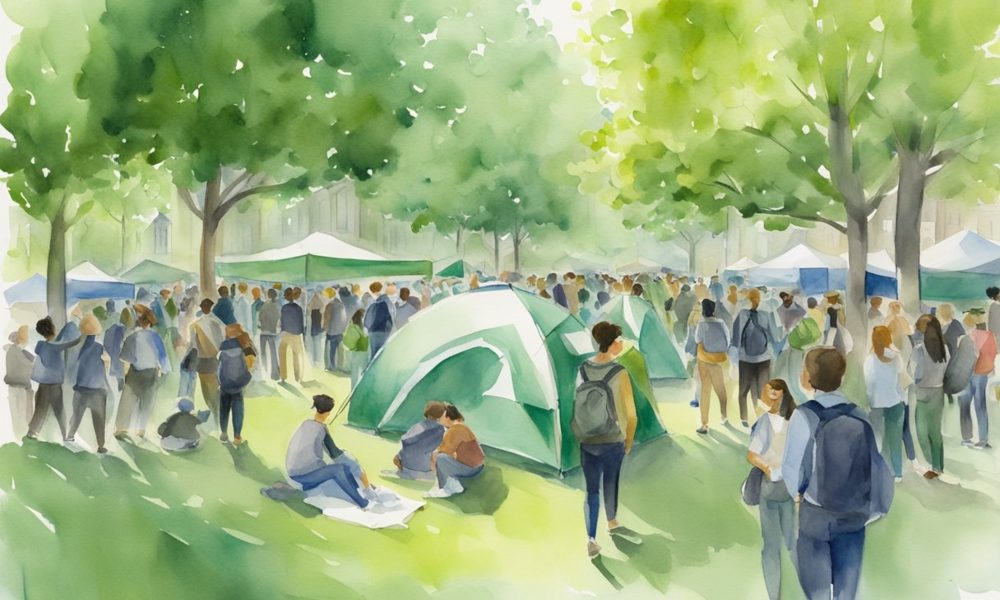Students at Columbia University in New York City are protesting, setting up camps on campus lawns and causing problems for other students.
Key Points
- Protesters have put up tents and are not letting some students enter certain areas
- This is making it hard for other students to get to classes and dorms
- The protests are about Palestinian human rights, but some students feel it’s gone too far
Why Should You Keep Reading?
Don’t you wish protests at your school let everyone go about their day freely?
Camps Set Up on Columbia’s Lawns
Over the past week, protester camps have sprung up on the lawns and greens around Columbia University’s campus in Manhattan. The protesters say they are standing up for Palestinian human rights. But their camps and blockades are causing big headaches for other students just trying to get to class or back to their dorms.
Many students are not happy about having to show IDs or get permission just to walk across areas of campus they’ve used for years. Junior Jessica Schwab told the media:
“I pay a lot of money to go here, and to not have equal access to the lawns like everyone else is really unfair and almost discriminatory. You should be able to believe what you believe and still have your rights as a student preserved.”
University Shifts to Hybrid Learning
Because the situation has become so disruptive, Columbia has announced the rest of the semester will shift to a hybrid model, with some learning online and some in-person. This is far from ideal, especially for graduating seniors looking to finish up their final weeks on campus.
Jessica lamented, “A senior wants to finish their experience on campus and have a good time, study hard. That’s all gone now. They are depriving other students of their academic gains and celebrations.”
Protesters: We’re Not Trying to Hurt Anyone
A protest organizer defended their camps in an interview, saying, “With every social movement there are outside detractors who spread hateful rhetoric, which we stand completely against. We stand for liberation and human rights for Jewish people and Palestinians.”
However, Jessica questions why these unauthorized camps are allowed when a student gathering before finals was quickly dismantled:
“If this protest is unauthorized, why is this not being dismantled as well? There’s a double standard.”
High Cost for Restricted Access
Jessica pointed out the steep costs of a Columbia education, “I pay closer to $90,000 each year. For me to not have access to a lawn I’ve walked on a thousand times is absurd.”
That high tuition makes it all the more frustrating for students to have core areas of campus blocked off or restricted due to the protests.
Conclusion
The situation at Columbia’s campus remains tense, with protesters insisting on their right to denounce human rights violations, and many students feeling their collegiate experience and free access is being disrupted unfairly.
Whether Columbia should dismantle the protest camps or work with both sides for a solution remains an open question. What’s your view – should universities place?
















